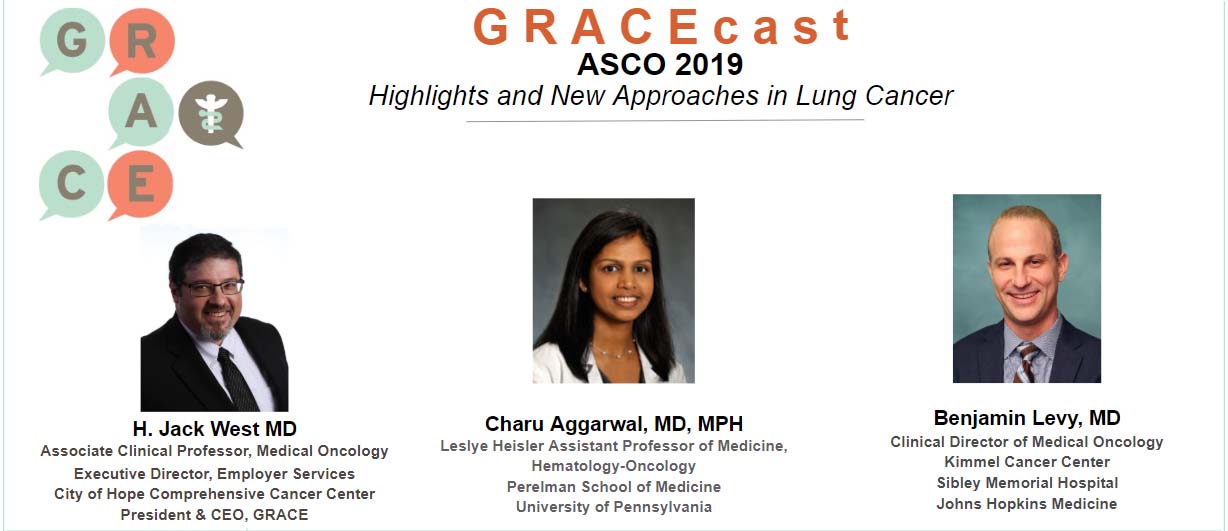Welcome!
Welcome to the new CancerGRACE.org! Explore our fresh look and improved features—take a quick tour to see what’s new.

We are excited to share with you a recent series of discussions between Drs. Howard (Jack) West, MD, Associate Clinical Professor, Medical Oncology, Executive Director, Employer Services at City of Hope Comprehensive Cancer Center, and Founder, President and CEO Of GRACE, Charu Aggarwal, MD, MPH with the Perelman Center for Advanced Medicine, University of Pennsylvania, and Benjamin Levy MD, Clinical Director Of Medical Oncology, Assistant Professor Of Oncology at the Johns Hopkins Sidney Kimmel Cancer Center at Sibley Memorial Hospital.
The doctors recently collaborated from their respective geographical locations to review top discussion points from Lung Cancer from ASCO 2019. In this video, the doctors discuss the following: "Stage II III NSCLC Adjuvant Afatinib Trial Ended Early, What Did We Learn About Adjuvant Targeted Therapy".
Please visit our community forums with any questions or comments!
Please feel free to offer comments and raise questions in our
discussion forums.
Bispecifics, or bispecific antibodies, are advanced immunotherapy drugs engineered to have two binding sites, allowing them to latch onto two different targets simultaneously, like a cancer cell and a T-cell, effectively...
The prefix “oligo–” means few. Oligometastatic (at diagnosis) Oligoprogression (during treatment)
There will be a discussion, “Studies in Oligometastatic NSCLC: Current Data and Definitions,” which will focus on what we...
Radiation therapy is primarily a localized treatment, meaning it precisely targets a specific tumor or area of the body, unlike systemic treatments (like chemotherapy) that affect the whole body.
The...
Biomarkers are genetic mutations (like EGFR, ALK, KRAS, BRAF) or protein levels (like PD-L1) in tumor cells that help guide personalized treatment, especially NSCLC, directing patients to targeted therapies or immunotherapies...
Hi Stan! So good to hear from you. I'm sorry for the late response. I too have been out of town with family and missed your post, probably because I was...
It is so good to hear from you! And I am so happy to hear that your holidays have been good and that you are doing well. It sounds like your...

Welcome to the new CancerGRACE.org! Explore our fresh look and improved features—take a quick tour to see what’s new.
An antibody–drug conjugate (ADC) works a bit like a Trojan horse. It has three main components: